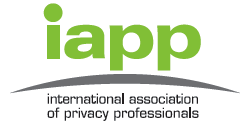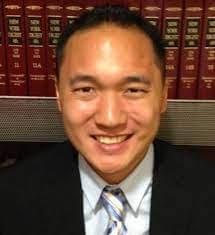
Curriculum in Law and Technology
Education at the intersection of law and technology in the heart of Silicon Valley

Teaching law for practice.
UC Law San Francisco is committed to the changing nature of law.
The law and technology curriculum at UC Law San Francisco prepares students to be the kinds of future facing lawyers that will shape the future of law in both the private and public sectors.
Concentration in Technology and Innovation
in the Practice of Law
The Technology and Innovation in the Practice of Law concentration prepares students to challenge the status quo as technology and globalization accelerate change in the delivery of legal services.
Learn more about the concentration and its requirements on the UC Law San Francisco website. You can also download a pdf of the concentration requirements. If you have questions, please reach out to Concentration Advisor Professor Drew Amerson.
Course Offerings
Courses in law, technology, and innovation are available to UC Law San Francisco students in their 2L and 3L years
Legal Operations for Lawyers
Professor Drew Amerson | Fall or Spring Semester
Legal operations (or "legal ops") provides the strategic planning, financial management, project management, and technology expertise to support and strengthen the delivery of legal services. In this course, students will learn about the economic forces currently impacting legal departments and law firms. Leading experts in the field of legal operations will be making presentations on a specific topic in many of the classes. These guest instructors will bring their own examples of real-world problems they faced and ask the students to solve them.
In-House Counsel Toolkit: Skills & Strategies
Professor Drew Amerson | Fall or Spring Semester
This course is designed to equip aspiring lawyers with the tools needed to succeed as in-house counsel. As the legal landscape continues to evolve, the role of in-house counsel has become increasingly vital in today's corporate world. In-house counsel must navigate complex legal issues while balancing the needs of multiple stakeholders and ensuring that their company operates in compliance with the law. Throughout this course, we will delve into the unique challenges that in-house counsel face, including managing relationships with external counsel, collaborating with business teams, and maintaining ethical standards. We will explore various strategies for effective communication and negotiation, as well as techniques for identifying and mitigating legal risk. Whether you are an aspiring in-house counsel or simply interested in the workings of corporate law, this course offers valuable insights and practical skills that will enhance your legal acumen and prepare you for success in the ever-changing legal landscape.
Financial Basics for Lawyers
Professor Heather Fields | Fall Semester
This course will introduce students to fundamental business, economic, and finance concepts that lawyers need to know in order to advise their clients effectively in a wide variety of practice areas, including civil litigation, public interest law, family law, estate planning, real estate and environmental law, healthcare law, intellectual property law, business law, and tax law, among others. NOTE: Students with strong business, economics, or finance backgrounds should not enroll, and students who have taken or are enrolled in Corporate Finance may not take this course.
Justice Tech: Building a Startup
Professor Drew Amerson | Fall Semester
This course focuses on teaching students the entrepreneurial mindset and business principles that underlie the formation of a startup. Students will learn by doing: design thinking, lean startup, team building, agile development as well as business model canvas and value proposition creation methods will first be studied and then used by students to develop the fundamentals of their own justice tech startup. The final for the class will take the form of a pitch competition by each student to a panel of legal tech entrepreneurs and experts.
AI Law
Professor Tal Niv | Fall Semester
This course will cover a range of topics related to the legal issues surrounding AI technology and the ethical implications of AI. The students will learn about the legal frameworks for AI regulation and governance, including intellectual property law, data protection law, and competition law and about legal and ethical implications in areas such as privacy, bias, and algorithmic ccountability.
Startup Legal Garage (coursework component)
Fall Semester
The Startup Legal Garage provides startups with legal resources, free of charge. The program provides students with hands-on experience working directly with startups and attorneys serving the startup community.
Regulation of Emerging Technologies
Fall or Spring Semester
Transformative technologies will continue to reshape how we live, work, learn, and play. In this course we will study how the law has evolved around new technologies. In particular, we'll explore the present and future impacts of automated driving systems, 3D printing, transportation network platforms, commercial drones, and blockchain. We will also challenge ourselves to think creatively about how regulatory landscapes should be built.
California Privacy Law
Spring Semester
California privacy law is constantly evolving and leading the United States and other countries. In this course, students will be introduced to key aspects of U.S. Federal and California privacy law and explore this interesting field by working through research and writing assignments relating to the instructor's handbook, California Privacy Law - Practical Guide and Commentary, 3d Ed. 2018. Throughout the semester, students will work through reading, research and graded writing assignments.
E-Discovery
Fall or Spring Semester
The recent expansion of electronic discovery in civil litigation raises a host of practical, technical and ethical issues for both lawyers and clients. The volume of potentially discoverable electronically stored information (ESI) is growing exponentially. Much of that ESI is stored on widely dispersed, unconnected, outdated or downright inaccessible systems. As a number of recent, high profile cases illustrate, the stakes for both lawyers and clients are high. This course covers up-to-date developments in the doctrines governing e-discovery, as well as the practical, technical and ethical issues discussed above.
Internet Law
Professor Tal Niv | Fall or Spring Semester
We immerse ourselves in the complexities of today’s digital frontier with this intellectually rigorous seminar on Internet law, where the ever-evolving interface between technology and regulation comes into sharp focus. We analyze pivotal legal topics such as intellectual property ("Who holds the rights to your viral TikTok or Instagram post?") and digital commerce ("To what extent is a click tantamount to consent?"). We engage in critical examination of content moderation and regulation ("What are the legal thresholds for online content?") and delve into the intricacies of privacy and data protection ("Who can lawfully track your digital footprint?"). Further, we scrutinize cybersecurity and unauthorized access ("When does hacking transition from a mere nuisance to a criminal act?") and explore the frameworks of Internet governance ("Who dictates the rules in the digital sphere?").
We remain at the forefront of contemporary legal discourse as we dissect the latest developments in legislation and policy—from evolving social media regulations and AI’s impact on copyright law to shifting platform liability and progressive data privacy statutes like the GDPR and U.S. state-level laws. Special attention is given to the regulation of AI as it applies to the Internet, highlighting significant international perspectives to provide a global understanding of how various jurisdictions address these emerging challenges. Through an examination of recent case law and in-depth discussions, we cultivate the analytical skills necessary to navigate and influence the legal landscape of the digital age. Supplementary readings provide foundational knowledge of Internet technology and intellectual property for those seeking additional context. No technical background is required; come prepared to challenge and expand your knowledge.
Venture Capital & Start-Up
Professor Rachel Proffitt | Fall Semester
This course will focus on the role of venture capital in the organization and development of the startup technology company, with emphasis on both the legal and business perspectives of this subject. The course will feature a number of guest speakers to share their experience from a real world perspective, including venture capitalists from Silicon Valley-based venture capital funds, executives from existing venture-backed technology companies, attorneys from local law firms that concentrate in the technology area, and others
U.S. Privacy Law
Fall Semester
The course is comprised of three parts. The first surveys privacy law foundations, including relevant constitutional, tort, and consumer protection laws. The second part examines personal information protection regimes, including GDPR, CCPA, and other relevant state & federal laws. The final part looks at sector-specific privacy issues, such as employment privacy, medical privacy and educational privacy.
Data Privacy Rights Seminar
Spring Semester
This seminar will examine recent developments in data privacy law in light of ever-increasing data aggregation and cybersurveillance practices by corporations and governments. The seminar will weave in discussion of statutory, common law, and constitutional frameworks are currently being applied in legal challenges to these activities, including federal and state wiretapping laws, biometric collection statutes, the tort of intrusion upon seclusion, and constitutional privacy issues. We will consider current critiques of privacy law as conceptualized by practitioners, as well as suggestions for navigating the future of privacy rights as it relates to our increasingly digitized lives. This seminar is not a survey of privacy law. Instead, it will focus on the conceptual underpinnings of privacy rights in light of current privacy litigation, critiques of pervasive privacy law-related practices, and prescriptive questions of what privacy law should be, both now and in the future.
Comparative Privacy Law
Fall or Spring Semester
This course surveys approaches to privacy regulation around the globe, including a comparison of regulatory frameworks and different policy solutions. The course also introduces the major international privacy regulatory and enforcement institutions. Core lecturing will focus on the European General Data Protection Regulation and how it compares with US law. Core concepts include controller/processor, personal data/personal information, data subject/consumer, cross-border transfers and processing which will be approached through lecture from a comparative perspective.
In-House Product & Tech Counsel
Fall or Spring Semester
The course prepares students for an in-house, product and high technology practice, with an emphasis on product development, identifying and understanding supply chain risks, and working effectively to advise and counsel engineers in a technology environment. The objective of this course is to equip students with the tools and skills needed to step successfully into legal positions from start-ups to top technology companies after law school. Students will draft, review and negotiate actual business and technology agreements such as (1) NDAs; (2) Product, Hardware and Manufacturing Supply Agreements; (3) Engineering Services, Design and Development Agreements; (4) Software License Agreements; and (5) Joint Development Agreements. Additionally, students will consider issues that arise during the contract lifecycle, handling business disputes, transactional ethics, dealing with stress & deal fatigue.
Corporate Counsel Externship Program
Fall or Spring Semester
Satisfies Experiential Learning requirement. The Corporate Counsel Externship is a two-unit, weekly class that covers a range of topics and competencies essential to legal practice in corporate counsel offices. Topics include the role of in-house counsel, upholding confidentiality and ethical standards, learning the client's business, effective business communication, contract review, risk assessment, and solving problems to further the client's strategic goals. To maximize each student's growth over the semester, the seminar teaches students how lawyers learn from practice, set professional development goals, build strong supervisory relationships, and reflect and self-assess. Students write reflective papers, make oral presentations, and complete other work as required by the instructors. Enrollment in the course is limited to those students acting as externs for one of the Program's pre-approved company partners, and earning 4-5 units of credit through the Corporate Counsel Externship Fieldwork for working at least 16 or 20 hours per week. Admission to the course requires the prior approval of the instructor. A separate application process runs early in the semester before desired enrollment.
Legal Externship Program
Fall or Spring Semester
Satisfies Experiential Learning requirement. This program provides students with the opportunity to participate in an approved externship at a government agency or non-profit legal organization. The program has an academic and a fieldwork component which must be taken concurrently. The academic component focuses on skills training, developing the ability to learn from critical self-reflection, and draws on students' experiences in their placements to advance not only their understanding of basic principles of substantive and procedural law relevant to their placements, but also of the role of lawyers and legal institutions in society. For the fieldwork component, students work either 12, 16, or 20 hours per week (for 3, 4, or 5 units) in a placement that must be approved by the Director of Externships. Students who wish to work for academic credit in a public defender or district attorney office, not focusing on a clean slate or sentencing project, must first take the Criminal Practice Clinic. 4th, 5th, or 6th semester students only.
Compliance & Risk Management
Fall Semester
COMPLIANCE & RISK MANAGEMENT FOR ATTORNEYS presents the law, standards, and practices organizing the burgeoning area of compliance and risk management. We will explore what it means for large, complex organizations to comply with the law and the unique role attorneys play in the compliance process. The class will start by examining the structures of corporate governance and how they relate to issues of compliance and risk management. We then explore how compliance functions are operationalized in large, complex organizations. Next, we map the many and varied sources of compliance pressure on organizations, focusing on how different actors enforce law, rules, and norms: regulators, prosecutors, whistleblowers, gatekeepers (e.g., attorneys and accountants), plaintiffs' attorneys, activists, and community groups. To illuminate these concepts, we will analyze case studies in key compliance areas, including: information security, foreign corrupt practices, money laundering and terror financing, and sexual harassment in the workplace.
Compliance: Privacy
Spring Semester
This course will provide students with an intensive overview of how corporations comply with several privacy and data security regulatory requirements. The focus will be on internal corporate structures, subject matter experts, and department silos for privacy compliance, but we will also address the interaction of corporate personnel with government officials, outside counsel, and customers. Students will examine distinctions between privacy and data security requirements, and model compliance frameworks to support a secure infrastructure for both. In class, students will role-play CEO, CTO, CPO, and CISO roles in addition to GC and other legal functions in hypothetical companies. Students then will engage in tabletop exercises designed to work through hypothetical problems in privacy compliance that are aligned closely with recent and pending privacy failures covered in the media, case law, and agency prosecutions.
Compliance: Financial Risk
Spring Semester
This course will provide students with an intensive overview of the management and regulation of financial risk. The management of financial risk is of profound importance to a wide range of stakeholders including investors of all sizes, corporations (including financial institutions), and regulatory agencies. We will focus on the major forms of financial risk: credit risk, market risk, liquidity risk, and solvency risk. We will explore how these risks arise, how they are measured, and the potential consequences if they are not managed properly. Further, we will consider both external regulation from the perspective of supervisory agencies as well as internal regulation from the perspective of senior management and the risk management department. The course emphasizes developing an understanding of the underlying rationale for regulations related to financial risk and how they are interpreted and implemented by firms. Accordingly, students will engage in exercises that stress identifying financial risks and determining what actions should be taken to manage these risks.
Emerging Digital Entertainment Law
Spring Semester
From Atari to Oculus, Pokemon cards to Pokemon Go, The Wizard to DOTA 2 tournaments, and AOL to smartphones - the relevant law often remains the same while the technology undergoes dramatic transformation. Digital Entertainment is a multi-billion dollar industry in the United States alone. Likewise, social networks have become a primary way for people to find and use such entertainment as interactive content migrates from consoles and the PC to mobile devices, the web and beyond. Together, we will explore the legal principles underlying how interactive digital entertainment is developed, distributed, and enjoyed by consumers. We will focus on legal doctrines from the perspective of counsel working with the content developers and publishers. Throughout the course we will assess the role that intellectual property laws play in fostering or inhibiting creativity and innovation within the industry. Together we will explore new and emerging technologies and discuss how to advise clients on these new technologies using the existing law available to us. The course will include regular in-class discussions and assignments in addition to a final paper. For your paper, you will be asked to select a legal issue in the area of emerging digital entertainment (such as augmented reality, virtual reality, location based entertainment, or esports) where you believe the technology has developed faster than the legal jurisprudence. You will be asked to identify the technology, the gap in the law, and your analysis on the how the law should develop, and why.
Energy Law
Spring Semester
ENERGY LAW will provide an in depth review of the basic principles of energy law, focusing on the regulated electricity and natural gas industries. It will survey both federal and state law, and will cover important federal-state jurisdictional issues grounded in the Commerce Clause and Supremacy Clause of the U.S. Constitution. Students will learn basic principles of the regulatory scheme in the United States, including cost-of-service ratemaking, modern market-based rates, and experiments (not all of them successful) with deregulation. A segment of the course will cover key developments in the emerging area of renewable energy.
Intellectual Property Survey
Fall or Spring Semester
This is a survey course which covers the substantive law of trade secrets, patents, copyrights and trademarks and may also cover additional aspects of unfair competition and state publicity rights. It is meant to provide students with a general working knowledge of the various intellectual property doctrines, and an understanding of how the individual intellectual property doctrines compare, contrast and may be used to complement one another. It is recommended for students who wish to explore intellectual property generally, whether it be to prepare for a general business or civil litigation practice or to specialize ultimately in any of the particular intellectual property subject areas. Students who expect to specialize in one or more areas of intellectual property practice may choose to take one or more of the three more specialized classes offered by the College: (1) Patents and Trade Secrets, (2) Copyright, and (3) Trademarks and Unfair Competition. Each of these 3-unit classes addresses the subject matter indicated in its name in greater depth than is provided in the Intellectual Property survey course. However, because there is substantial overlap, a student who has already taken two of the specialized courses will not be permitted to enroll in the Intellectual Property survey course. Enrollment in both Statutory: Intellectual Property (178) and IP Survey (412) is not permitted.
STAT: Intellectual Property
Spring Semester
STATUTORY: INTELLECTUAL PROPERTY introduces first-year students to the major Federal intellectual property regimes - patent, copyright, and trademark - through the lens of statutory interpretation and administrative agency action. For each regime, the course is structured around (1) The statutory boundaries of each regime - the subject matter Congress has declared eligible and ineligible for intellectual property protection; (2) The process of obtaining rights - the statutory requirements for protection, and (3) The process of enforcing rights - the statutory definitions of and exceptions to infringement. For each segment, the course considers the interaction between the prospective rights-holder and the administrative agency in question, and the division of responsibility between court and agency in defining the law.
Patent Law
Spring Semester
This class provides in-depth coverage of United States patent law, concentrating on the requirements of patentability and the process of enforcing patent rights. In addition, it covers aspects of patent prosecution practice and procedure, as well as limitations on patent rights imposed by other bodies of law. This class is recommended particularly for students planning to specialize in patent law because it covers the subject matter in greater depth than the Intellectual Property survey courses.
IP Under State Law: Trade Secrets
Spring Semester
Trade secret law is one of the four core areas of intellectual property law, along with copyrights, trademarks and patents. Trade secret law is particularly important in Silicon Valley and other high technology regions based on small start-up enterprises, high rates of employee movement and venture financing. Students who plan to work in technology-related fields will face trade secret issues just as surely as they will face copyright and patent issues. This course will cover trade secrecy, with a focus on California law under the Uniform Trade Secrets Act. It will also cover the federal Defend Trade Secrets Act of 2016. It will also cover a number of related doctrines that regulate use of information between employers and employees, including non competition covenants, non-solicitation covenants, invention assignment agreements, fiduciary duty and the preparing to compete doctrine, and the Work for Hire doctrine under the Copyright Act. Much of trade secret practice in Silicon Valley and other technology regions is not reflected in the case law. To give students a sense of how the law might arise in practice, the course will provide examples such as venture capital due diligence, planning for a start-up company and so on. Key conflicts in today's trade secret practice - inevitable disclosure, identification of trade secret claims, and preemption of common law claims - will be explored in greater depth, along with public policy concerns - like employee rights and innovation policy - that inflect all areas of intellectual property law.
Copyright
Spring Semester
This class provides in-depth coverage of substantive copyright law. It covers the subject matter in greater depth than the Intellectual Property survey course.
Leadership Skills for Lawyers
Spring Semester
This course is designed to help students develop crucial career skills, including: projecting credibility and confidence; giving and receiving feedback, better handling of difficult conversations; gaining a better understanding of their strengths and a plan for addressing areas in need of development; understanding the importance of strong professional networks and learning the skills to build one; understanding the different roles lawyers play and which are a best match for their interests and skills; and identifying their career goals and writing a business plan to achieve them. Students will make two presentations, write five reflection papers and create a business plan.
Negotiation Practice & Process
Spring Semester
Satisfies Experiential Learning. NEGOTIATION & MEDIATION PROCESS & PRACTICE is an introduction to the theory, process, and practice of negotiation and mediation, to help students improve their skills as negotiators and develop a framework for self-learning in the future. In addition to group discussions, classroom instruction will rely heavily on simulation, videotaped demonstrations, and small group work assignments. There will be required readings for most classes and a number of short written assignments related to particular classes and outside-of-class simulation exercises. NOTE: Students who enroll in this course may not enroll in Negotiation. Likewise, if you took or enrolled in Negotiation (838), you cannot enroll in this class.
Video Game Law
Fall or Spring Semester
This course explores the legal and business issues raised by video games and video game platforms. The course will devote substantial time to the various intellectual property issues associated with the development and commercialization of video games, and we will also cover related topics such as licensing and consumer rights. In lieu of a traditional exam, students will write several short memos in which they will play the role of IP Counsel at a video game studio and will "advise the CEO" on legal and business issues related to the launch of a new game.
Electronic Surveillance in the 21st Century
Fall Semester
May satisfy Writing Requirement. In the last 15 years, the proliferation of cell phones and other smart devices have given American citizens access to nearly limitless information and connectivity. This technology has also opened up a new frontier in Fourth Amendment litigation, and this course focuses on caselaw in the world of electronic surveillance in law enforcement, including, but not limited to facial recognition, social media and cryptocurrency metadata, and real-time surveillance (CSLI and cell towers). A large majority of the caselaw this course will explore is drawn from the last decade, and several of these topics have circuit splits, which means that they are ripe for Supreme Court review. This class will combine discussion of the case law, guest practitioner speakers, and review of actual (redacted) court orders from prosecutors.
Certifications Available to Students
UC Law San Francisco students can supplement their coursework with a privacy certification

IAPP Higher-Ed Program
The International Association of Privacy Professionals is the largest and most comprehensive global information privacy community and resource. Founded in 2000, the IAPP is a not-for-profit organization that helps define, support and improve the privacy profession globally.
With the goal of helping to support those students studying privacy to further establish themselves in the privacy space, the IAPP presents a unique opportunity to earn the following credentials - the CIPP/US, CIPP/E, CIPM or CIPT.
The IAPP Higher-Ed Program offers UC Hastings students a discounted student membership, access to its research and publications, online training, sample questions, and a PearsonVUE based certification exam.
Interested students should fill out this form or contact the Director of LexLab, Drew Amerson, to receive more details..
Open Space on Campus for Students
During the academic school year, students on campus seeking a quiet space to take their online courses, a private phone call, or want to meet the LexLab team, are encouraged to use our space.

Meet the professors
The leading minds in tech and innovation have come together to create this one of a kind curriculum and shape the future of legal education to come.

Alice Armitage
Emeritus Director of Applied Innovation
Professor Alice Armitage was the Director of Applied Innovation, which oversaw both LexLab and the Startup Legal Garage. These two innovative programs are aimed at preparing students for practicing law in today's legal space.

Alison Drutchas
Adjunct Professor at UC Law SF
Policy and Product Counsel at Waymo

Robin Feldman
Director of the Institute for Innovation Law
Professor Robin Feldman received a bachelor's degree from Stanford University and a J.D. from Stanford Law School, graduating the Order of the Coif and receiving the Urban A. Sontheimer Award for graduating second in the class. Professor Feldman also served in the Articles Department of the Stanford...

Shane Glynn
Adjunct Professor, UC Law SF
General Counsel and Cofounder, MobileCoin

Ugo Mattei
Distinguished Professor of Law & Hanna Fromm Chair in International and Comparative Law

Rachel Proffit
Adjunct Professor, UC Law SF
Partner, Cooley LLP
Rachel practices corporate and securities law and represents public and private clients, as well as venture capital and investment banking firms and other institutional investors, across a broad range of industries. Her practice focuses on general corporate and complex transactional matters, including venture capital transactions, public and private securities offerings, mergers and acquisitions and other strategic transactions, and public-company disclosure and corporate governance. Prior to joining Cooley, Rachel was a partner at Wilson Sonsini Goodrich & Rosati.

David Rudolph
Adjunct Professor, UC Law SF
Partner, Lieff Cabraser Heimann & Bernstein
David Rudolph is an experienced litigator and privacy law specialist. He is a partner at Lieff Cabraser Heimann & Bernstein, and a member of the firm’s Cybersecurity and Data Privacy and Antitrust and Intellectual Property practice groups. Professor Rudolph has extensive experience litigating core technical and legal issues in privacy cases, and his active privacy practice encompasses cutting-edge issues related to cybersecurity, Big Data, and European privacy law. He is a Certified Information Privacy Professional (CIPP/US), and has presented on panels related to current issues in privacy and cybersecurity law.

Wesley Cheng
Adjunct Professor
Professor Wesley Cheng is currently a corporate counsel for a tech company in Silicon Valley, where he conducts internal investigations into leaks and theft of intellectual property, cyber intrusions, and insider threats. Prof. Cheng is also responsible for delivering investigative reports and recommendations to the executive staff to prevent recurrence.

Chaya Baliga
Adjunct Professor
Chaya Baliga is an in-house privacy attorney and joined the UC Law SF faculty in 2022 as an Adjunct Professor of Law teaching Privacy Law. Chaya currently serves as Privacy Counsel at Google in Washington D.C., where she specializes in data incident response and product privacy counseling.

John LoForese
Adjunct Professor
John LoForese is an Associate Privacy Counsel at Google, where he partners with engineering, legal, and compliance teams to conduct privacy assessments of new products and features and build compliance programs to prepare for new privacy laws. John counsels internal clients on data protection matters ranging from product design, commercial negotiations, mergers and acquisitions, and third party data protection.

Tal Niv
Director of Applied Innovation
Tal Niv joined UC Law SF in 2024 as the Director of Applied Innovation, where she is responsible for advancing the law school’s ambition to be a premier educational hub for the next generation of technology lawyers.

Robert Walker
Bio forthcoming.

Morris Ratner
Academic Dean
Provost & Academic Dean Morris Ratner (BA, Stanford University 1988; JD, Harvard Law School 1991) manages and supports the faculty and all academic programs, including clinics, centers, academic skills instruction and support, career development, and the legal writing program.
© 2026
















